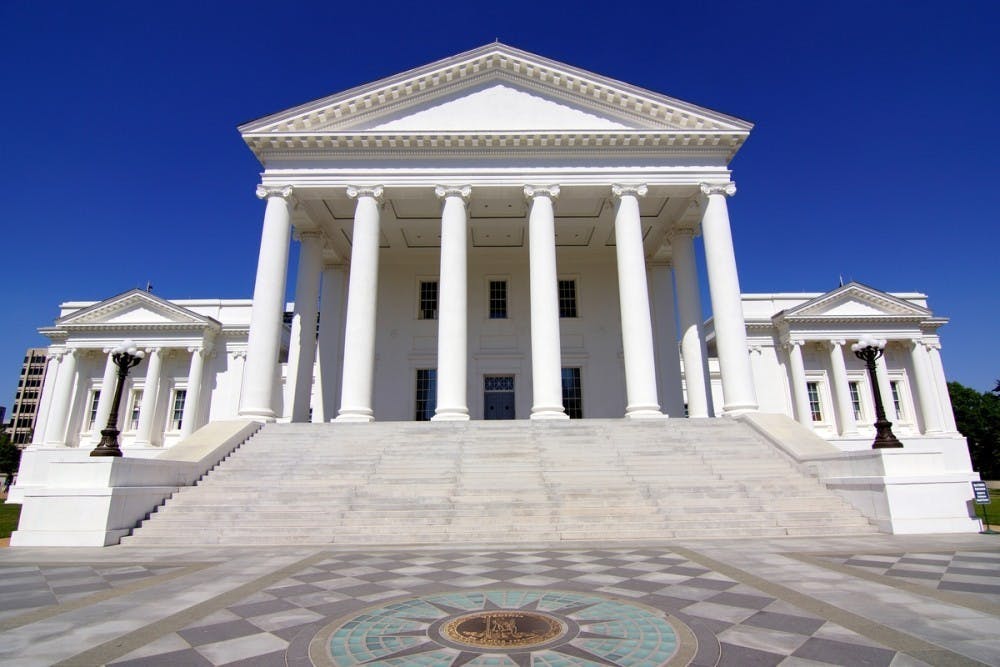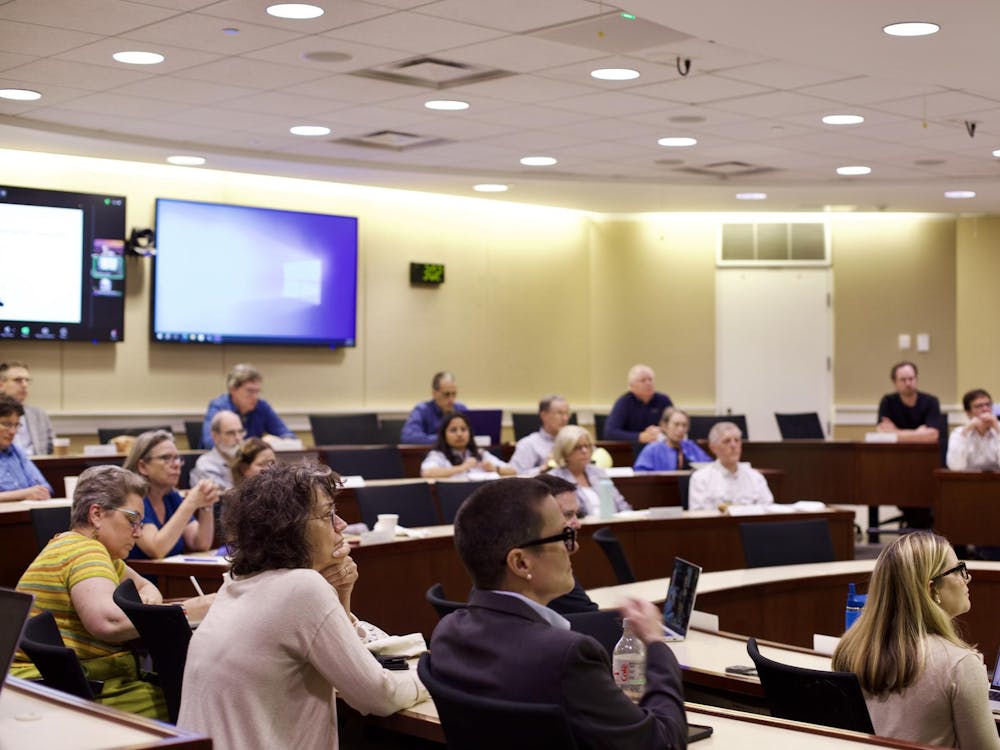As members of Virginia’s General Assembly prepare to begin the new legislative session Jan. 13, Student Council’s Legislative Affairs Committee plans to pursue its own state-level agenda on behalf of University students. This year, the committee hopes to eliminate discrimination from religious student organizations, end the use of unpaid prison labor and expand voting access.
Last month, Student Council passed legislation denouncing discrimination against LGBTQIA+ students in response to an open letter written by third-year College student Alex Briegel, who was asked to step down from a leadership position in Chi Alpha — a Christian fellowship on Grounds — for disclosing that he had a boyfriend.
The resolution calls upon the General Assembly to intervene and eliminate the exemption allowing faith-based organizations to discriminate based on sexual orientation and gender identity. State code 23.1-400 prohibits the state from discriminating against a “religious or political student organization” that is exercising its rights to order “the organization’s internal affairs,” select “the organization’s leaders and members” or define “the organization’s doctrines.”
“At the current moment, religious organizations do not receive funding from the University, but they do receive publicly funded benefits such as the ability to reserve space on Grounds, attend activities fairs and the resources on the atUVA website,” Hannah Koizumi, Chair of Legislative Affairs for Student Council said.
Student Council’s goal to end the use of prison labor serves as a call for the Virginia legislature to follow the suit of Congressional Democrats, who introduced a bill several weeks ago to end the practice. Unpaid prison labor is currently permissible under the 13th Amendment and Koizumi noted that the Commonwealth has used it to produce masks during the COVID-19 pandemic. She added that the University has purchased furniture from companies using these labor practices, too.
“U.Va. historically buys its furniture from companies that use prison labor and unfairly compensate their workers under the minimum wage and without workers’ rights or protections,” Koizumi said. “We support [the Congressional resolution] entirely and call for a similar one to be passed in the Virginia State Legislature to uphold the values of the Commonwealth and ensure that this practice is outlawed permanently in Virginia.”
University Spokesperson Brian Coy confirmed that public universities in Virginia such as U.Va. are required by state law to purchase furniture from Virginia Correctional Enterprises, a state-owned company that employs about 1,300 inmates in state prisons. Since 2015, the University has spent roughly $23,000 per year on furniture from VCE.
According to a study by the Prison Policy Initiative, Virginia pays inmates between $0.55 and $0.80 per hour for their work.
In the current fiscal year — with data from October to mid-December 2020, the University has spent a total of $3.1 million on furniture, 94 percent of which has gone to small, women-owned and minority businesses, according to Coy. For instance, the University purchased standard issue reusable masks from Bright Ideas, a local, woman-owned business and its disposable masks from Supply Room Companies, another local, woman-owned business.
Of the $3.1 million spent on furniture, $2,400 has gone towards VCE. Coy noted that purchases this year are down overall because of the pandemic’s effects.
“The University spends more than $1 billion per year on products and services to keep the institution running,” Coy said. “Purchases across the board are below normal in FY21 due to the remote work environment and fiscal constraints related to the pandemic.”
Additionally, Student Council plans to lobby for expanded voting access through support of three separate initiatives — a Senate bill that would repeal the requirement for a witness on absentee ballots, a constitutional amendment to lift restrictions banning “those who have been convicted of a felony or adjudicated to be mentally incompetent” and a House bill to push voter registration bookclosing back from 21 days before an election to just 13 days.
While the COVID-19 pandemic might change the channels through which Student Council members contact their counterparts in Richmond, they believe that the lobbying process will look similar to how it would in a normal year.
“Lobbying often includes initial emails with representatives to gauge their interest in our platform and meeting with legislators who have already introduced legislation that aligns with our initiatives,” Koizumi said.
This year, Koizumi said that they expect those meetings with delegates and staffers will take place virtually. In addition, she said that she anticipates that coronavirus concerns will cause student testimony at General Assembly Committee meetings to be virtual, as well, instead of at the State Capitol in Richmond.
Speaker of the House of Delegates Eileen Filler-Corn, D-51, has already announced that the entirety of the House of Delegates’ 2021 session will be online, including committee and subcommittee meetings. The State Senate plans to meet in-person in the Virginia Science Museum, pursuant to social-distancing, testing and masking protocols.
The Legislative Affairs Committee typically meets with Charlottesville’s representatives, Delegate Sally Hudson, D-57, and State Senator Creigh Deeds, D-25, but has also worked with legislators from outside the area on issues of common interest. Last fall, for example, the Legislative Affairs Committee met with Delegate Schuyler VanValkenburg, D-72, to discuss his bill to begin no-excuse absentee voting at the state level.
Koizumi said that she believes that the issue of voting access will occupy a great deal of the General Assembly’s attention this session.
“This year I believe that expanding voting rights to those who have been convicted of felony will receive a lot of attention,” Koizumi said. “This form of voter suppression has been the status quo for a long time in Virginia and it will be a milestone that undoubtedly will be contested by some.”







